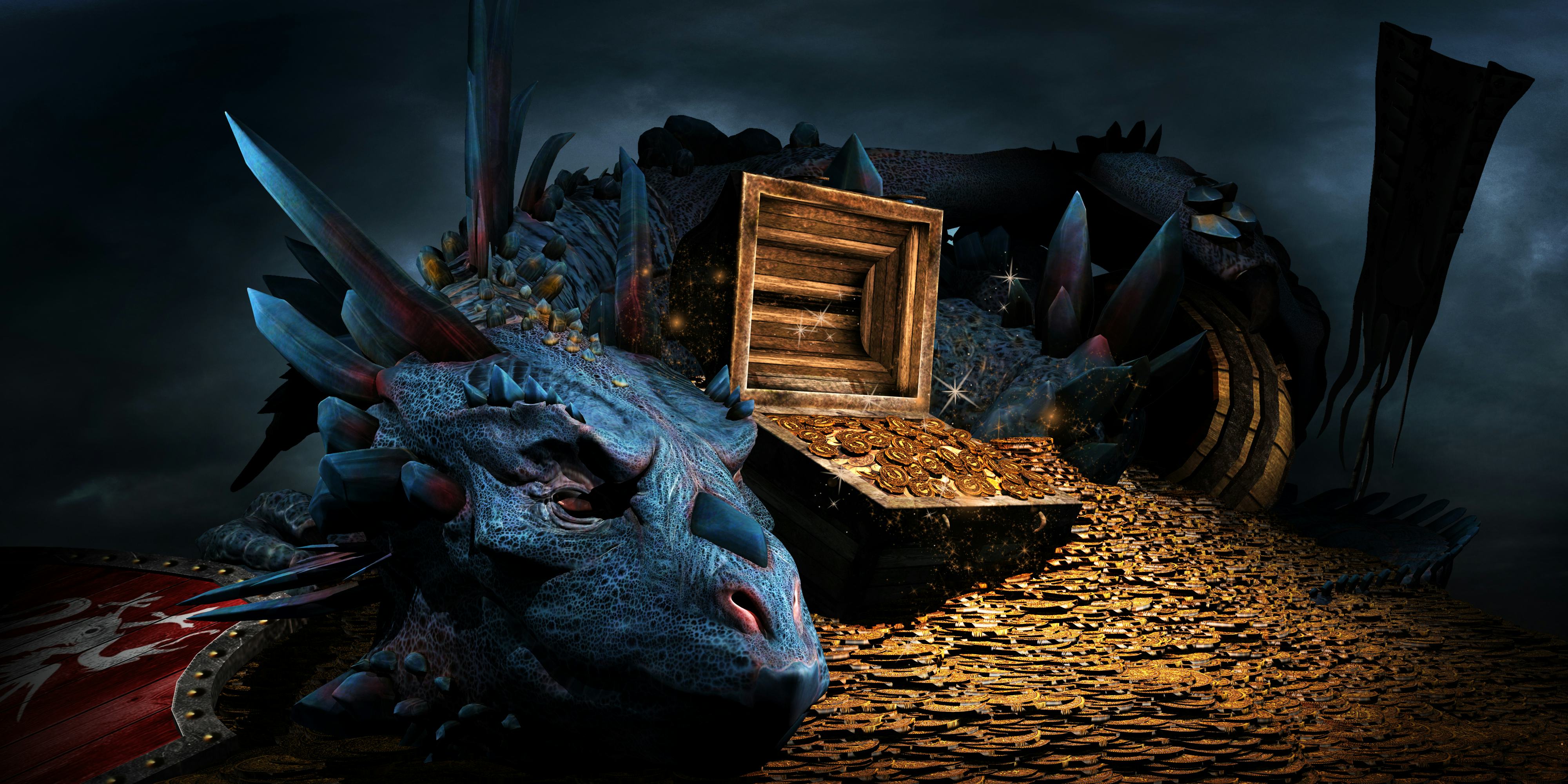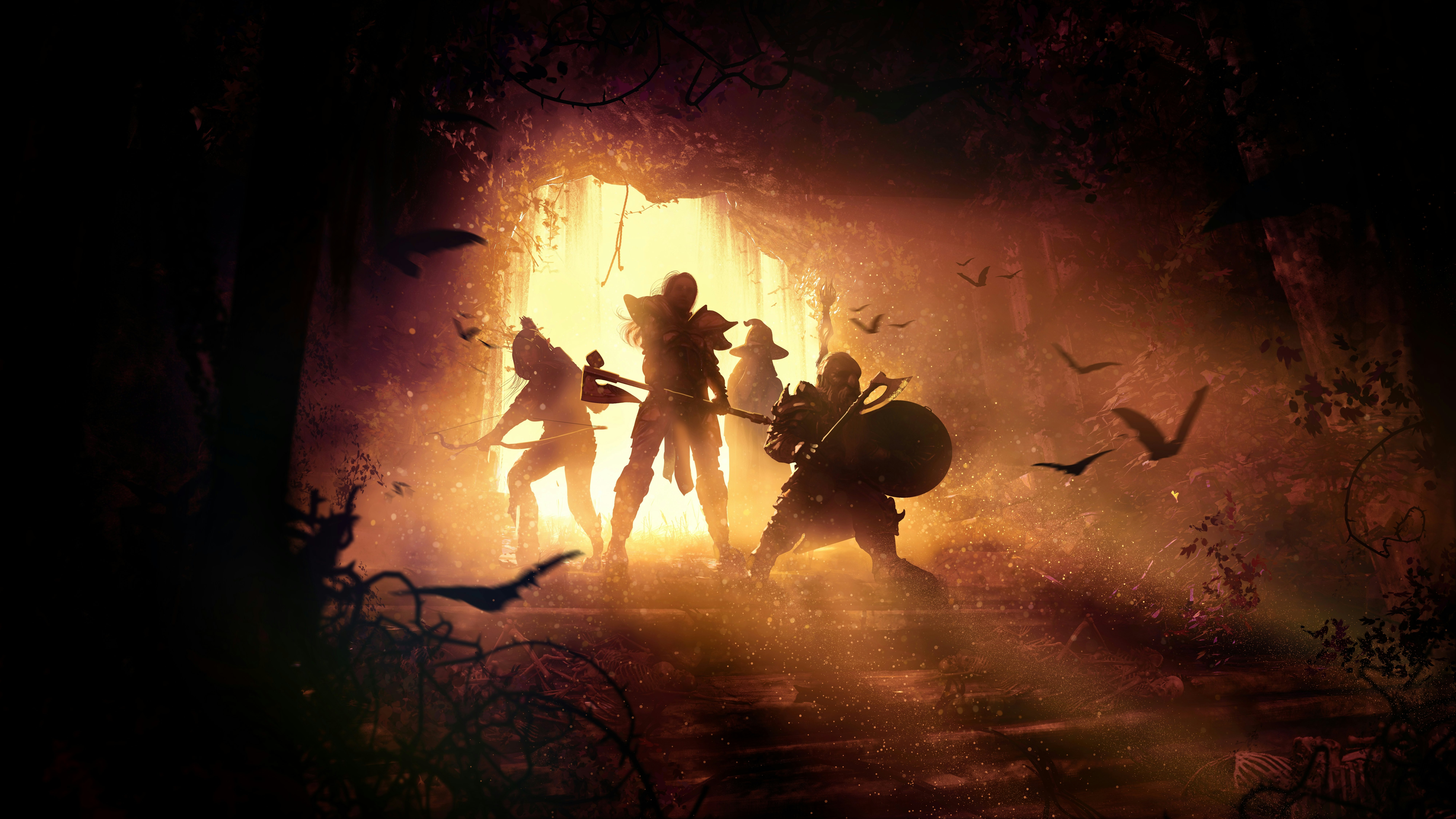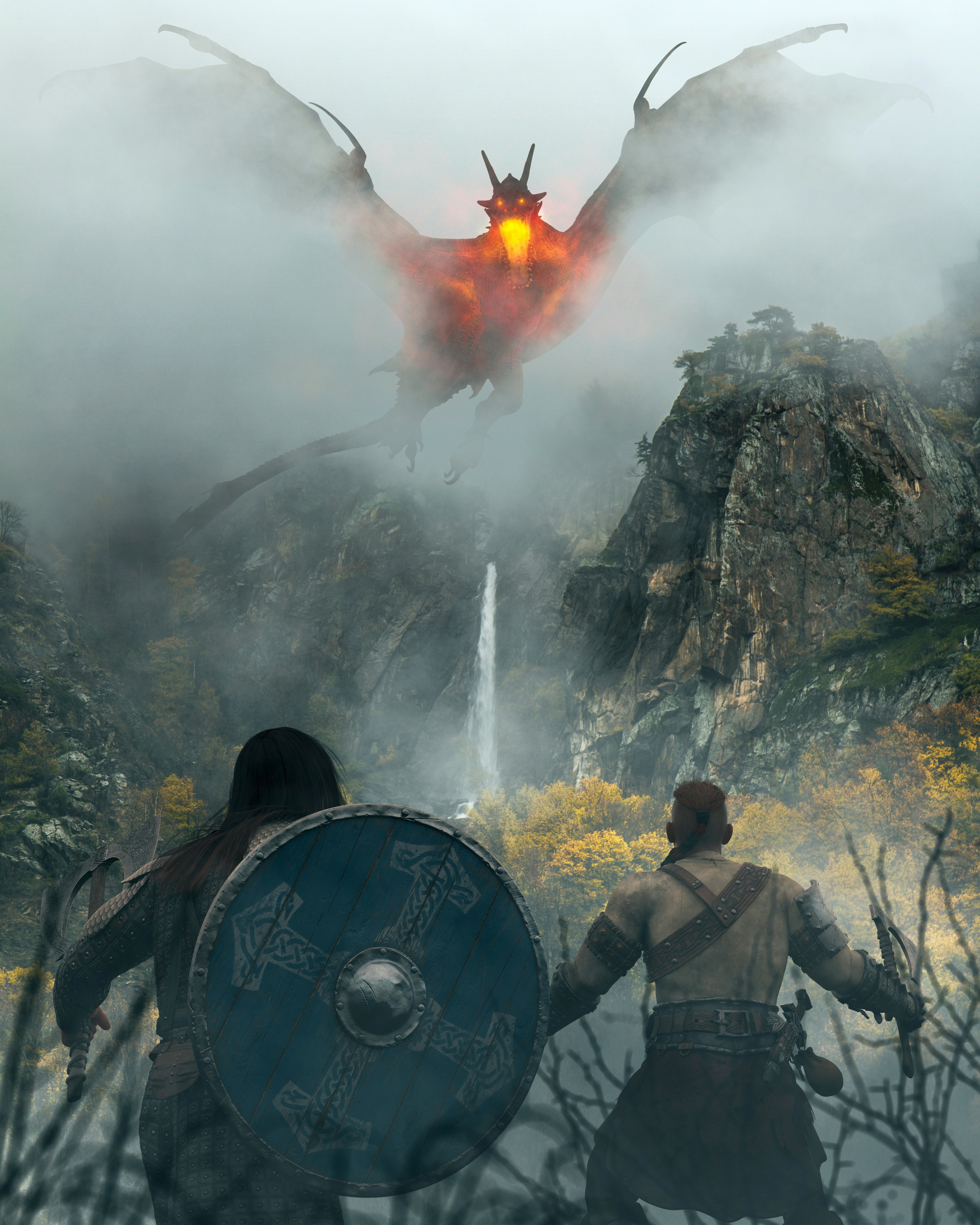
Once you lose somebody’s trust, it can sometimes be incredibly hard to win it back. That’s the narrative playing out right now in the tabletop role-playing game community due to ongoing concerns about updates to how Dungeons & Dragons publisher Wizards of the Coast licenses the game to third-party creators. While the company has taken big steps toward addressing the community’s feedback and will continue to do so, the TTRPG scene may never be the same.
What Happened — A controversial early draft of D&D publisher Wizards of the Coast’s updated Open Gaming License (OGL) — dubbed the OGL 1.1 — drew the ire of players after it leaked in December. The new license would deauthorize the previous one, levy taxes on some of the biggest third-party publishers, and give Wizards ownership over anything published with the license. Not only would the company technically be able to repurpose anything published under the OGL 1.1, but it could force some creators to pay 25 percent of all revenue (not profit) back to Wizards.

“This is anti-competitive, monopolistic behavior designed to crush small businesses that collectively employ hundreds of designers, writers, and artists,” an open letter written in protest reads.
After weeks of silence, apologies began on January 13, but it wasn’t until January 19 that the game’s Executive Producer Kyle Brink revealed the official draft of the OGL 1.2.
“As players, fans, and stewards of the game, we can’t — and we won’t — let things continue like this,” Brink wrote in his first mea culpa. “I am here today to talk about a path forward.” That path involves taking “the time to iterate, to get feedback, to improve,” which is exactly the process that game designers take when developing D&D itself. Elements from pretty much every new D&D sourcebook go through what’s ostensibly beta testing, and player feedback is taken into consideration before it’s fully published.
The core tenet of this revamped and creator-friendly approach involves a Creative Commons license for core D&D mechanics, but this new draft also walks back pretty much every controversial aspect of the OGL 1.1.
“There's no royalty payment, no financial reporting, no license-back, no registration, no distinction between commercial and non-commercial,” Brink wrote. “Nothing will impact any content you have already published under OGL 1.0a. That will always be licensed under OGL 1.0a. Your stuff is your stuff.”
Anything already published under OGL 1.0 will remain as such, but any new publications fall under OGL 1.2, which also allows Wizards to shut down any projects that include offensive or hurtful content. These are all excellent changes, but is it enough to undo the damage already done?

“The revolt has already begun” — In a conversation with Games Radar, lead RPG writer at Steamforged Games Richard August — the man responsible for TTRPG adaptations of Dark Souls and Elden Ring based on D&D under the OGL 1.0 — argued that this may be the beginning of the end for D&D’s dominance in the industry.
"It's probably the end of that 'golden age' of D&D [being] the king, and most games being happy to be in its shadow,” August said. “I think we'll see a lot more big plays for market share, and some companies will be in a position to take a big chunk of the market."
The OGL 1.1 would have required the biggest third-party D&D publishers to pay royalties to Wizards of the Coast based on revenue — not profit. This likely includes Steamforged Games, but also other high-profile players like Paizo, the publisher behind Pathfinder and Starfinder. Along with Kobold Press, Chaosium, and Legendary Games, these publishers banded together to protest the OGL 1.1 and raise awareness. But, even more importantly, many of them also made efforts to quickly develop unique TTRPG systems that would allow them to publish content that avoids any of Wizards’ three OGLs entirely.
Paizo in particular has led the charge. The company announced on January 12 that regardless of what the new OGL looks like, the company would be shifting over to its own system and license. “We have no interest whatsoever in Wizards’ new OGL,” the announcement reads. “Instead, we have a plan that we believe will irrevocably and unquestionably keep alive the spirit of the Open Game License.”
Dubbed the Open RPG Creative License (ORC), it’ll be system-agnostic and developed under the guidance of Azora Law, a Seattle-based firm with expertise in intellectual property law. By January 19, Paizo confirmed that more than 1,500 TTRPG publishers had signed up to help develop and publish under the ORC.
By and large, the current mood in the TTRPG community can be summed up by author Chris Gonnerman of publisher Basic Fantasy: “Their attempt to invalidate the license we've always depended on and then to effectively steal what we've created demonstrates that they are an existential threat to our game.” For many out there, Gonnerman included, even the vastly improved OGL 1.2 is too little too late.
The Inverse Analysis — Dungeons & Dragons only became so popular over the last decade precisely because of the OGL 1.0 and the accessibility of D&D 5th edition. Wizards of the Coast made it easy for anybody to publish their own adventures and even easier for new players to give the game a try. But Wizards of the Coast is a company with an IP, and companies have to worry about profits. While the leaked draft of the OGL 1.1 did indeed overstep, we’d do well to remember that it was a leak Wizards presumably never intended to go public. Maybe it’s a corporate wish list that should’ve never seen the light of day.

Many in the community remain skeptical, however. “There are lots of conversations occurring, public and private, at varying levels of volume, about the ‘leaked’ Open Gaming License document,” wrote Penny Arcade’s Jerry Holkins in a blog post. “Is it a leak? A test fire?” Holkins is the creator and Dungeon Master of the Acquisitions Inc. live-play D&D podcast, and he’s right to point this out. We may never know the truth in this regard, but the ongoing conversations continue to generate “manufactured chaos” in excess. And in the wake of that chaos, many seem to be walking away.
“Dungeons & Dragons isn't really a brand — it's a culture, which is a million times better than a brand,” he wrote. “And it's not like that doesn't have direct implications for the bottom line: D&D is on its most successful iteration ever precisely because it's a universal touchstone.”
What’s going to happen to that culture now that the brand is now associated with this quagmire? Some of the language in Wizards’ first apology does strike me as problematic and even a touch combative, which is precisely why Kyle Brink brought a softer and more personable tone to the conversation. Clearly, efforts are being made to course-correct and save face.
The OGL 1.2 is about as good as any of us could’ve hoped, and it’s only going to be refined further via the iterative feedback process. I suspect that, like mine, many D&D tables out there will stick by the game for years to come. But perhaps it’s a good thing that various publishers are exploring alternate licenses and game systems. While D&D doesn’t exactly have a monopoly per se in the TTRPG scene, it’s the only brand with true mainstream appeal and name recognition. So it strikes me as bitterly ironic that, in the effort to further monetize D&D’s hold on the market share, all the OGL 1.1 actually accomplished is to diversify the variety of systems and licenses.
I suspect that a lot of gamers will stick with what’s familiar and easy, and there’s nothing wrong with that if Wizards has truly learned its lesson. But by and large, public opinion may have shifted too far already.







